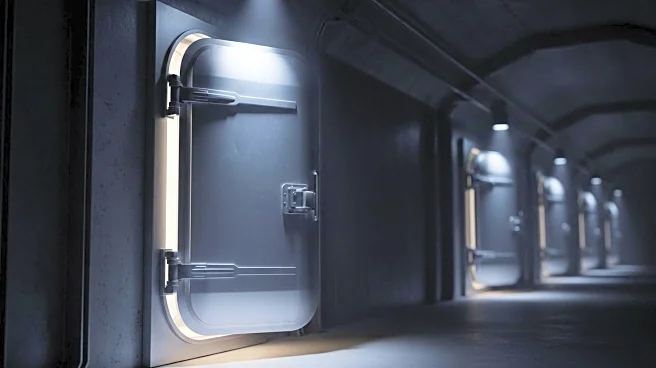What is the story about?
What's Happening?
Russian President Vladimir Putin announced that Russia is prepared to adhere to the New START Treaty for an additional year, extending the last remaining nuclear control pact between Russia and the United States. The treaty, set to expire in February, limits both countries to 1,550 deployed nuclear warheads and 700 deployed missiles and bombers. Putin emphasized the importance of maintaining the treaty's restrictions to avoid negative impacts on global stability and nuclear nonproliferation. The extension is contingent on the U.S. following suit, as Russia seeks to prevent a strategic arms race.
Why It's Important?
The extension of the New START Treaty is crucial for maintaining global stability and preventing nuclear proliferation. The treaty's expiration without renewal could lead to increased tensions between nuclear powers, potentially escalating into a strategic arms race. By adhering to the treaty's limits, Russia aims to foster a conducive environment for strategic dialogue with the U.S., potentially easing bilateral relations. The U.S. response is critical, as any deviation from the treaty's terms could disrupt the balance of deterrence and escalate tensions further.
What's Next?
Russia's decision to extend the treaty's limits is contingent on the U.S. acting similarly. Putin has instructed Russian agencies to monitor American activities, particularly regarding missile defense systems. Any destabilizing actions by the U.S. could prompt a response from Russia, potentially affecting future arms control negotiations. The international community will be watching closely to see if the U.S. reciprocates Russia's commitment, which could pave the way for renewed dialogue on nuclear arms control.
















